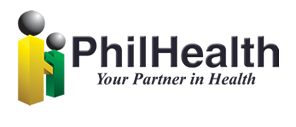Breaking
About 14.7-M indigent individuals are now PhilHealth members – DSWD
MANILA – The Department of Social Welfare and Development (DSWD) said on Sunday some 14.7 million poor individuals aged 21 years and above identified through the DSWD’s Listahanan database of the poor are now PhilHealth (Philippine Health Insurance Corp.) card holders.
According to DSWD Secretary Corazon J. Soliman, the indigent PhilHealth members have been identified under the National Household Targetting System for Poverty Reduction (NHTS-PR).
“Of the total, almost 4.4 million Pantawid Pamilyang Pilipino Program (4Ps) beneficiaries are enrolled under the PhilHealth program as sponsored members,” Soliman said.
The DSWD chief recalled that in 2012, her agency had partnered with PhilHealth to provide health care for the indigents.
She said that such initiative came out upon assessment that the poor are most vulnerable whenever a member of the family gets sick because they have the tendency to slide deeper into poverty.
As Sponsored Members, they are entitled to full benefits, including the case rate payments for 23 medical and surgical cases, and enjoy No Balance Billing.
Under that No Balance Billing policy, they no longer need to pay in excess of the PhilHealth-set benefits in government health facilities.
They can also avail of the “Z” Benefit Package for catastrophic illnesses such as childhood acute lymphocytic leukemia (P210,000), breast cancer (P100,000), prostate cancer (P100,000), and kidney transplant (P600,000).
This package is available in all PhilHealth-accredited government hospitals nationwide.
On top of these benefits, beneficiaries also enjoy primary care benefits such as consultations, regular blood pressure monitoring, promotive health education on breastfeeding, and counseling on lifestyle modification and smoking cessation.
Medicines for diseases like asthma and acute gastroenteritis (with mild or no dehydration), upper respiratory tract infection/pneumonia, and urinary tract infection are also provided by accredited healthcare providers.
To avail of health care benefits, the beneficiaries will just have to present their household ID numbers at any accredited hospital in the country.
Many 4Ps beneficiaries now taste the benefits of becoming PhilHealth-sponsored members.
“I am happy that more families are now seeking medical help for their illnesses. Before, they were discouraged from seeking medical help for fear of the high cost of hospitalization. Their PhilHealth membership has given them the courage to face their health challenges,” Secretary Soliman said.
She cited Victor Maglangit, 52, of District 2, Barangay Puntod, Cagayan de Oro City.
Victor has trouble walking after suffering from a stroke that paralyzed his left arm and left leg.
After his stroke on June 20, Victor was brought to the Northern Mindanao Medical Center (NMMC) for medication.
During his seven-day admission at NMMC, Victor could not help but worry over his mounting hospital bill.
Before his scheduled discharge from the hospital, Victor asked his wife, Marilyn, to inquire about their bill at the cashier so that they could look for someone to help them pay the amount.
The wife was surprise when the cashier told her that they had nothing to worry about because the hospitalization, medicines, and professional fee for the doctors were free.
At present, through DSWD’s Assistance to Individuals in Crisis Situation (AICS), the department is also facilitating Victor’s request for assistance to defray the cost of his daily drug maintenance.
The Pantawid Pamilyang Pilipino Program (4Ps) is a human development strategy program of the government that invests in the health and education of poor families, primarily those with children aged 0-18.
It provides cash grants to family beneficiaries who comply with the conditions of sending their children regularly to school and attendance to family development sessions.
As a way also to keep the children healthy and strong, they are given the condition to have regular consultations at the health centers and receive immunization from diseases.






















